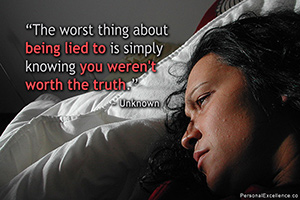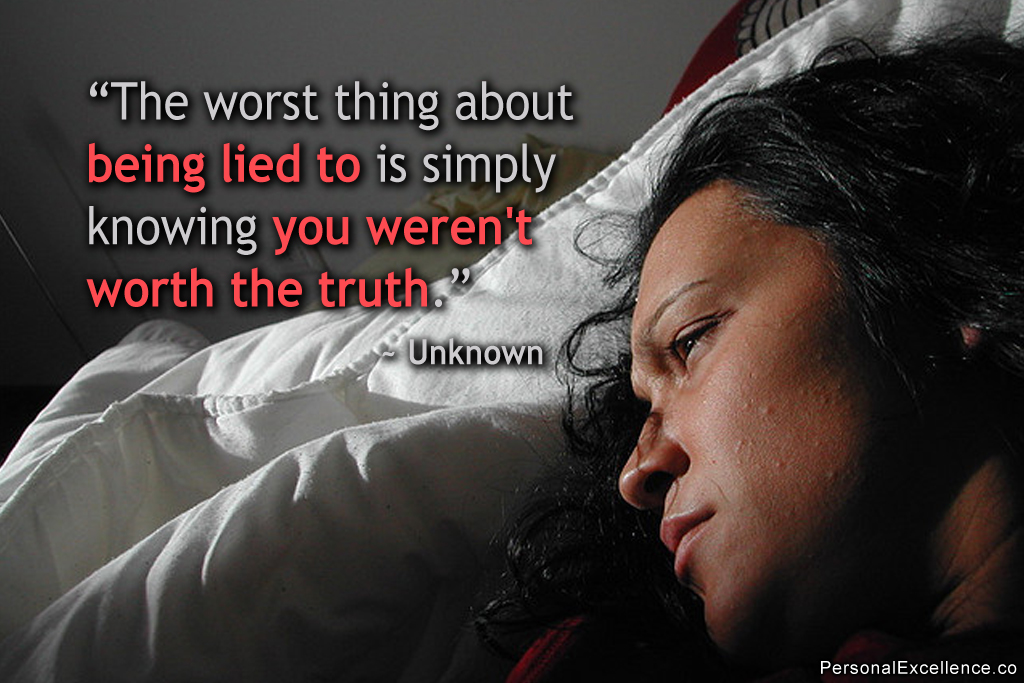This is a guest post by Daniel Wong of Daniel-Wong.com.

If you’re a student, do you ever feel like what you’re learning in school isn’t relevant to the “real world”?
Or if you’ve already completed your formal education, did you have to unlearn some things from school in order to adapt to life after school?
I spend a lot of time working with students, parents and educators. I’ve observed that there’s a disconnect between what goes on in school and what goes on in the “real world.”
Please don’t get me wrong; you’ll learn plenty of useful things in school, but you’ll need to unlearn some things as well.
After all, you’ll probably spend 12 years or more in the school system. That’s a long time! During this time, it’s possible that you might pick up bad habits and incorrect ways of looking at the world.
I’ve come up with six things you’ll need to unlearn if you want to find long-term success.
1. Failure is disastrous
As a student, my biggest fear was failing a test or an exam. I even had nightmares about it.
What would my teachers say if I failed?
Would I have the guts to show my parents my report card?
Would I be able to make it to the next grade?
My fear of failure made me insecure and low in self-esteem. Many students I work with go through a similar experience.
But, in life, failure is seldom disastrous. In fact, given how complex the world is today, failure is often necessary if you want to succeed.
In my opinion, the highest aim of education is to teach students to fail intelligently. This means that schools should encourage students to dare to fail, to overcome obstacles, to surmount challenges, and to go at it again.
It’s through intelligent failure that students set themselves up for greater success in the future.
2. It’s better to work alone
Don’t you hate it when your teacher assigns a group project? There are plenty of reasons why many students dislike group projects:
- The grading is subjective
- Even if you try your best, you might not get an ‘A’
- You might get stuck with one or more lazy group members (who will probably get the same grade as you, the hardworking one!)
- It’s difficult to coordinate group members’ schedules
- Interpersonal conflicts can arise
As such, students generally prefer to work alone. This applies to writing papers, completing homework assignments, and preparing for tests and exams.
In the real world, however, you can’t accomplish much on your own. If you’re working on a complicated assignment, building a business, or raising a family, you’ll need to function as part of a team.
It’s impossible to know or do everything, so you’ll be forced to work with others.
Schools should teach students how to get along with others, criticize constructively, disagree productively, and be a team player.
Equipping students with these skills will ensure that they’re prepared to face the demands and realities of life after school.
3. There’s always a right answer
Students like “model answers.” They believe that if they’re equipped with the perfect answers, they’re sure to do well on the exam.
But in life there’s almost never just one right answer. You can adopt numerous approaches to the same problem.
Just think about how different Yahoo! and Google are as search engines, yet they both serve the same function in different ways—and they both have millions of users.
In the real world, model answers don’t exist. Instead, you’ll need to conduct repeated experiments. You’ll need to experiment in order to determine if your assumptions, your business, your branding, your product, and your skill set are viable.
The unfortunate fact: When you experiment often, you’ll be wrong often.
But that’s completely okay, as long as you take precautions to guarantee that a failed experiment won’t result in a catastrophe.
4. Someone will tell you what you need to know
As students spend more time in school, they tend to become passive participants in their own learning.
Most students wait to be told what homework to do, what projects to work on, and what to study.
But this isn’t the way to achieve success in the real world. Being compliant and obedient can only get you so far. If you want to add value to your community or organization, you’ll need to take the initiative.
You’ll need to ask questions, not just follow instructions. You’ll need to go beyond what you’re expected to. You’ll need to do more than you’re paid to.
5. Education only happens in school
Just 10 or 20 years ago, if you wanted to get an education, you had to go to school. There were few alternative options.
But that’s no longer the case.
Today, there’s so much information available on the Internet—just at the click of a mouse button—that you can get an education outside of school.
School isn’t where you go to get an education. Instead, school should just be part of your education.
If you want to learn about a specific topic, develop a particular skill, or pick up a certain hobby, you can.
There’s sure to be a blog, online forum or YouTube video you can look up to get the information you need.
When you start to see that learning can take place anywhere, and that just about anyone can be your teacher, you’re on your way to becoming a truly educated person.
6. Only what’s in the syllabus is important
The school system emphasizes exam performance. This can cause students to associate learning with exams, and nothing else.
If it’s not going to be tested, why bother learning it, right?
But, in the real world, there are hardly any formal exams. Neither is there a “syllabus” that outlines the knowledge and skills you simply must possess.
Because of the mindset that only what’s in the syllabus is important, many people don’t read (I’m referring to books, not Tweets or Facebook status updates) after they leave school. This approach, however, won’t lead to success in the long run.
Whether you’re a homemaker, engineer, mechanic, nurse, teacher or CEO, there are always new things to learn and new skills to acquire.
If you want to be world-class at anything, it’s essential that you familiarize yourself even with content that’s “outside the syllabus.”
In closing…
Even if you’ve completed your formal education, your learning journey isn’t over.
As Alvin Toffler noted, “The illiterate of the 21st century will not be those who cannot read and write, but those who cannot learn, unlearn, and relearn.”
Heeding this advice, let’s learn the important, unlearn the redundant, and relearn the essential.
Our future—both as individuals and as a society—depends on it.
(Image: RunRockPrincess)
About the Author: Daniel Wong is the author of “The Happy Student: 5 Steps to Academic Fulfillment and Success.” He writes about education and career at www.daniel-wong.com.








 Thanks for reading. If you like my free articles, join my private email list and get my latest updates and articles sent right to your inbox.
Thanks for reading. If you like my free articles, join my private email list and get my latest updates and articles sent right to your inbox.